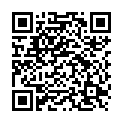|
|
|
| Module code: KI644 |
|
2V (2 hours per week) |
|
2 |
| Semester: 5 |
| Mandatory course: no |
Language of instruction:
German |
Assessment:
Student assignment, exercises and a written exam
[updated 08.05.2008]
|
KI644 Computer Science and Communication Systems, Bachelor, ASPO 01.10.2014
, semester 5, optional course, non-technical
PIBWN15 (P221-0111) Applied Informatics, Bachelor, ASPO 01.10.2011
, semester 5, optional course, not informatics specific
|
30 class hours (= 22.5 clock hours) over a 15-week period.
The total student study time is 60 hours (equivalent to 2 ECTS credits).
There are therefore 37.5 hours available for class preparation and follow-up work and exam preparation.
|
Recommended prerequisites (modules):
None.
|
Recommended as prerequisite for:
|
Module coordinator:
Prof. Dr. Klaus-Jürgen Schmidt |
Lecturer:
Prof. Dr. Klaus-Jürgen Schmidt
[updated 01.04.2003]
|
Learning outcomes:
Students will learn about important elements of interpersonal communication and management and how to apply them. They will gain insight into day-to-day management processes and will examine case studies of team management within companies. After completing this course, students will be able to work more efficiently in groups and influence team interaction in a positive manner.
[updated 13.03.2007]
|
Module content:
1. The basic terminology of interpersonal communication
2. The relationship between interpersonal communication and management
3. Techniques of verbal communication and feedback
4. Facilitation and moderation skills
5. Presentations and communication
6. Creativity techniques
7. Problem-solving techniques
8. Team development
[updated 08.05.2008]
|
Recommended or required reading:
Gehm, Theo: Kommunikation im Beruf, Weinheim und Basel 1994
Mehrmann, Elisabeth: Präsentation und Moderation
Schulz von Thun, Friedmann: Miteinander reden I-IV. Reinbeck 2002
Weinert, A.B.: Organisationspsychologie, Weinheim 1998
Additional print and web-based references will be provided.
[updated 08.05.2008]
|
Module offered in:
WS 2015/16,
WS 2014/15,
WS 2013/14,
WS 2012/13,
SS 2012,
...
|


